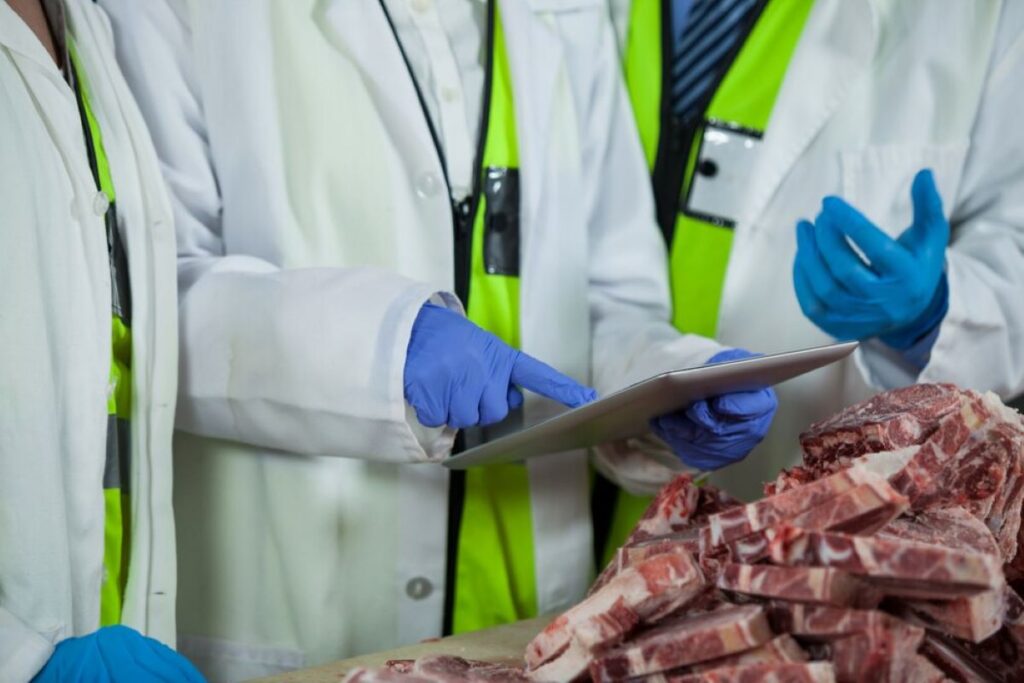The Role of Food Safety Compliance and Risk Management in Protecting Consumers

In an era where foodborne illnesses continue to pose significant health risks, the importance of food safety compliance and risk management cannot be overstated. The food industry is vast and complex, encompassing everything from agricultural production to food processing, distribution, and consumption. Ensuring that food products are safe for consumers is a multifaceted challenge that requires stringent adherence to safety regulations and proactive risk management strategies.
Understanding Food Safety Compliance
Food safety compliance refers to the adherence to laws, regulations, and guidelines designed to ensure the safety of food products. In Australia, food safety is governed by a combination of federal, state, and local regulations, which are enforced by various agencies, including Food Standards Australia New Zealand (FSANZ) and local health departments.
Key Regulations and Standards
Australia has established a robust framework of food safety standards that businesses must comply with. The Food Standards Code, which is developed by FSANZ, outlines the requirements for food safety practices, including food handling, storage, and preparation. These standards are designed to minimise the risk of contamination and ensure that food is safe for consumption.
In addition to the Food Standards Code, businesses must also comply with the Australia New Zealand Food Standards Act, which provides the legal basis for food regulation in the country. This legislation empowers regulatory bodies to enforce compliance and take action against non-compliant businesses, thereby safeguarding public health. The Act encompasses a wide range of provisions, including those related to labelling, food composition, and the establishment of food safety management systems, which are essential for maintaining high standards throughout the food supply chain.
The Importance of Compliance for Businesses
For food businesses, compliance with food safety regulations is not merely a legal obligation; it is also a critical component of their operational integrity. Non-compliance can lead to severe consequences, including fines, legal action, and damage to reputation. Furthermore, businesses that prioritise food safety compliance are more likely to build trust with consumers, which can lead to increased customer loyalty and sales. The implications of non-compliance extend beyond immediate financial penalties; they can also result in product recalls, which can be devastating for a brand’s reputation and consumer confidence.
Moreover, the landscape of food safety is continually evolving, with new technologies and practices emerging to enhance safety measures. Businesses that stay ahead of these changes not only ensure compliance but also position themselves as leaders in the industry. Implementing comprehensive training programs for staff, adopting innovative food safety technologies, and regularly reviewing compliance procedures can significantly enhance a business’s ability to meet regulatory standards. This proactive approach not only mitigates risks but also demonstrates a commitment to quality and safety that resonates with consumers, ultimately contributing to a more sustainable business model.
The Role of Risk Management in Food Safety
Risk management in food safety involves identifying, assessing, and mitigating risks associated with food production and consumption. This proactive approach is essential for preventing foodborne illnesses and ensuring the safety of food products.
Identifying Risks
Identifying potential risks is the first step in effective risk management. This involves evaluating every stage of the food supply chain, from farm to fork. Common risks include biological hazards, such as bacteria and viruses; chemical hazards, such as pesticide residues and allergens; and physical hazards, such as foreign objects in food products.
Businesses must conduct thorough risk assessments to identify vulnerabilities in their processes. This may involve reviewing supplier practices, assessing food handling procedures, and monitoring environmental conditions that could contribute to contamination.
Implementing Control Measures
Once risks have been identified, businesses must implement control measures to mitigate them. This can include establishing standard operating procedures (SOPs) for food handling, conducting regular training for staff, and implementing monitoring systems to ensure compliance with safety standards.
For example, businesses may adopt Hazard Analysis and Critical Control Points (HACCP) principles, which provide a systematic approach to identifying and controlling hazards at critical points in the food production process. By implementing these measures, businesses can significantly reduce the likelihood of foodborne illnesses and enhance consumer safety.
Consumer Protection and Public Health
The ultimate goal of food safety compliance and risk management is to protect consumers and promote public health. Foodborne illnesses can have severe consequences, including hospitalisation and even death. According to the World Health Organization (WHO), an estimated 600 million people fall ill after consuming contaminated food each year, resulting in 420,000 deaths globally.

The Economic Impact of Foodborne Illnesses
The economic burden of foodborne illnesses is substantial. In Australia, the cost of foodborne diseases is estimated to be in the billions of dollars annually, accounting for healthcare costs, lost productivity, and the impact on the food industry. By prioritising food safety compliance and effective risk management, businesses can not only protect consumers but also contribute to the overall economic well-being of the country.
Building Consumer Trust
Trust is a critical component of the relationship between consumers and food businesses. When consumers feel confident that the food they purchase is safe, they are more likely to remain loyal to a brand. Transparency in food safety practices, such as clear labelling and open communication about sourcing and handling, can enhance consumer trust.
Moreover, businesses that actively engage in food safety initiatives, such as participating in food safety audits or certifications, can further demonstrate their commitment to consumer protection. This proactive approach not only safeguards public health but also strengthens brand reputation and consumer loyalty.
The Role of Technology in Food Safety
Advancements in technology have significantly transformed the landscape of food safety compliance and risk management. Innovative solutions are emerging that enhance the ability of businesses to monitor and manage food safety risks effectively.
Data Analytics and Monitoring Systems
Data analytics plays a crucial role in identifying trends and patterns related to food safety. By leveraging data from various sources, businesses can gain insights into potential risks and make informed decisions. For instance, real-time monitoring systems can track temperature and humidity levels in storage facilities, alerting businesses to any deviations that could compromise food safety.
Additionally, predictive analytics can help businesses anticipate potential risks based on historical data, enabling them to take proactive measures before issues arise. This data-driven approach enhances the overall effectiveness of risk management strategies.
Blockchain Technology
Blockchain technology is another innovative solution gaining traction in the food industry. By providing a transparent and immutable record of the food supply chain, blockchain enhances traceability and accountability. This technology allows businesses to track the origin of food products, monitor their journey through the supply chain, and quickly identify sources of contamination in the event of a food safety issue.
Moreover, blockchain can facilitate more efficient recalls by enabling businesses to pinpoint affected products and their distribution channels swiftly. This level of transparency not only protects consumers but also reinforces trust in the food system.
Challenges in Food Safety Compliance
Despite the advancements in food safety compliance and risk management, challenges remain. The food industry is constantly evolving, and businesses must adapt to new regulations, emerging risks, and changing consumer expectations.
Regulatory Changes and Compliance Costs
Regulatory changes can pose significant challenges for food businesses. Keeping up with evolving regulations requires ongoing training and resources, which can be particularly burdensome for small and medium-sized enterprises (SMEs). Compliance costs can be a barrier to entry for new businesses, potentially limiting competition in the market.
Furthermore, the complexity of regulations can lead to confusion and unintentional non-compliance. It is essential for businesses to stay informed about regulatory updates and seek guidance from industry experts to navigate these challenges effectively.
Consumer Awareness and Education
Consumer awareness of food safety issues is crucial for promoting safe food practices. However, misinformation and lack of understanding can lead to consumer panic and distrust. Businesses must take an active role in educating consumers about food safety, including proper food handling practices and the importance of checking for food recalls.
By fostering a culture of food safety awareness, businesses can empower consumers to make informed choices and contribute to overall public health.

Conclusion
Food safety compliance and risk management are integral components of protecting consumers and ensuring public health. By adhering to regulations, implementing effective risk management strategies, and leveraging technology, businesses can significantly reduce the likelihood of foodborne illnesses and enhance consumer trust.
As the food industry continues to evolve, it is essential for businesses to remain vigilant and proactive in their approach to food safety. By prioritising compliance and risk management, they not only safeguard their customers but also contribute to a healthier, more sustainable food system.
In a world where food safety is paramount, the commitment to compliance and risk management is not just a responsibility; it is a fundamental aspect of ethical business practice and consumer protection.
Related : Best Food Safety Software Companies: What Sets Them Apart

